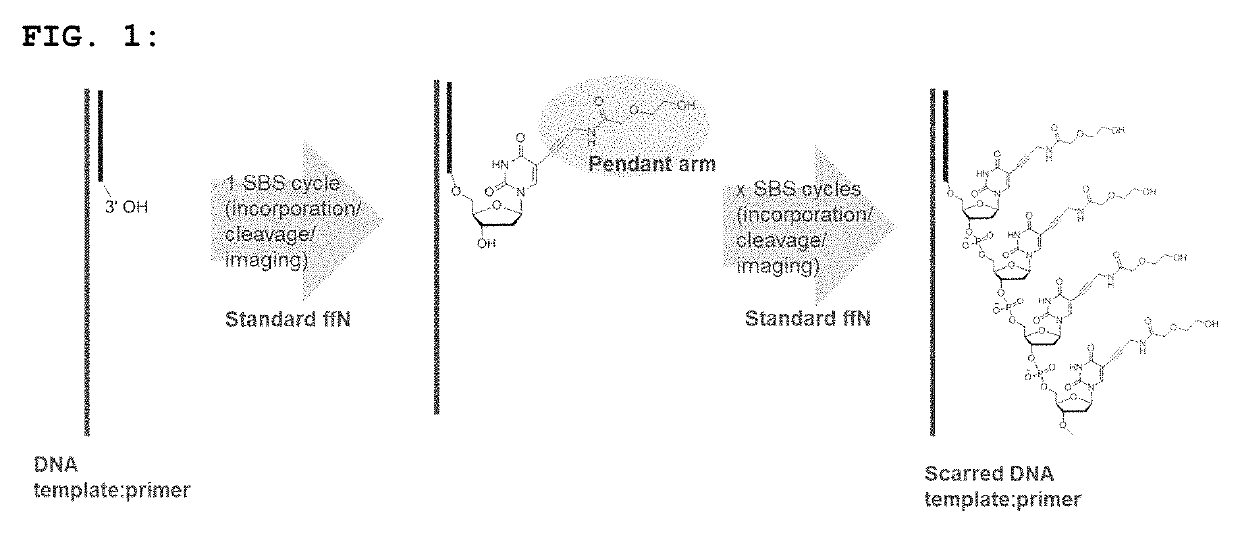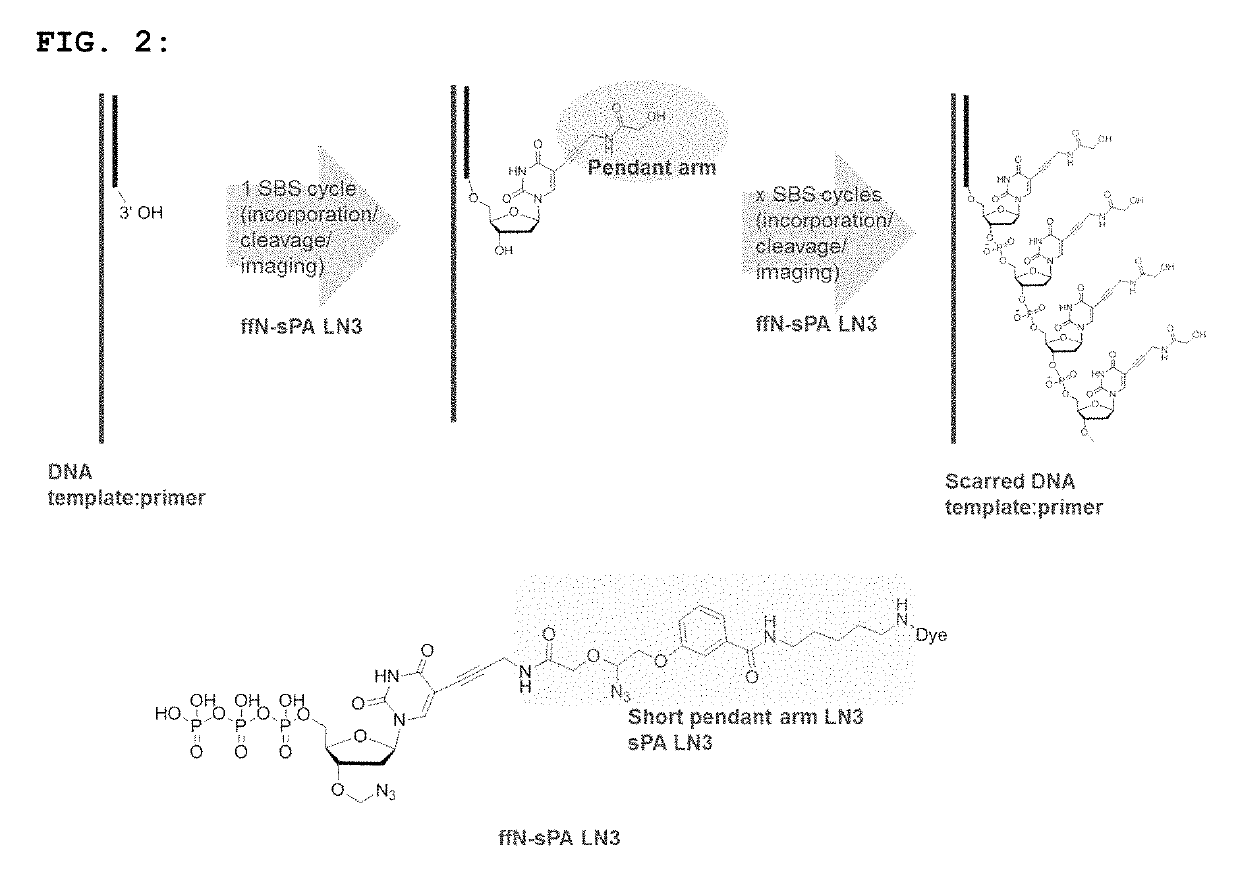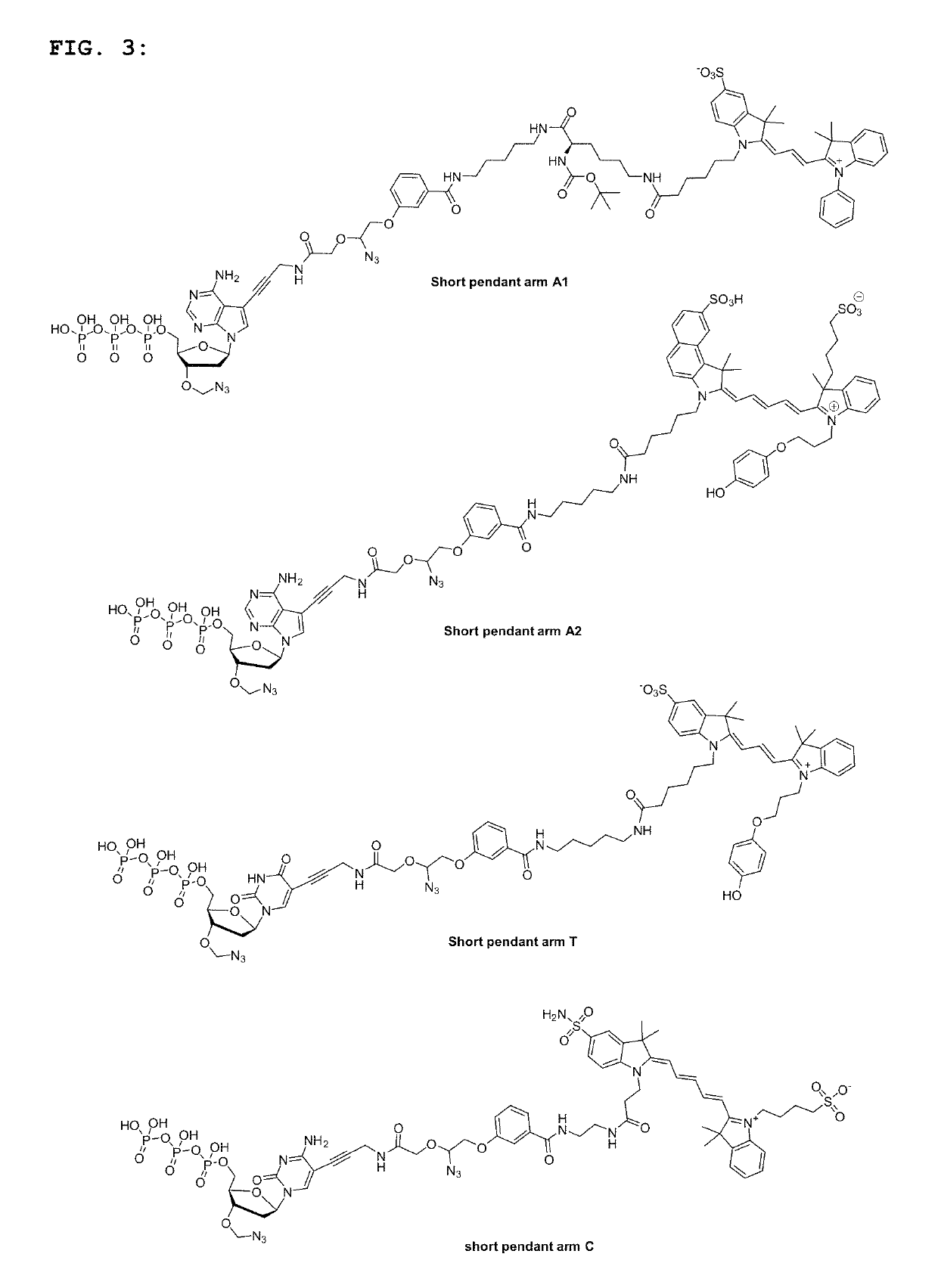Short pendant arm linkers for nucleotides in sequencing applications
a technology of nucleotide and sequence, applied in the field of new nucleotide and oligonucleotide compounds, can solve the problems of slow cleavage, increase the error rate, and not particularly effective, and achieve the effects of slowing down the incorporation of new incoming nucleotides, increasing the error rate, and reducing the data quality
- Summary
- Abstract
- Description
- Claims
- Application Information
AI Technical Summary
Benefits of technology
Problems solved by technology
Method used
Image
Examples
example 1
Synthesis of Short-pendant Arm Nucleotide Triphosphate
[0130]
Synthesis of Intermediate L2
[0131]The starting material L1 (1.07 g, 4 mmol) was dissolved in anhydrous DMF (15 mL), then placed under nitrogen at 0° C. in an ice bath. N,N-diisopropylethylamine (884 μL, 4.8 mmol) was added, followed by PyBOP (2.29 g, 4.4 mmol). The reaction was stirred under nitrogen at 0° C. for 20 minutes. Then N-(5-aminopentyl)-2,2,2-trifluoroacetamide, trifluoroacetate salt (1.5 g, 4.8 mmol) was added, followed by N,N-diisopropylethylamine (1 mL, 5.4 mmol). The reaction was removed from the ice bath and stirred at room temperature for 3 hours. The solvent was removed under reduced pressure and the residue dissolved in ethyl acetate (100 mL). The solution was extracted with 3×100 mL of diluted KHSO4 aq. (pH=1), 1×50 mL of water, 2×100 mL of sat. NaHCO3 aq. The organic phase was dried on Na2SO4 anhydrous and the solvent was removed under reduced pressure. The crude was purified by flash chromatography on ...
example 2
Use of Short-pendant Arm Nucleotide Triphosphates in SBS Sequencing
[0144]The sequencing performance of the short pendant arm nucleotides was compared against that of standard SBS nucleotides, which contained the same fluorescent groups on a standard cleavable linker. Four short pendant arm nucleotides (two As, C, T) labelled with fluorophores suitable for 2-channel SBS sequencing (FIG. 3), and dark G were included in a solution comprising a DNA polymerase and incorporation buffer and used in either a 2-channel modified Hiseq® or 2-channel modified Miseq® to sequence on two reads of 150 cycles each. The sequencing metrics (e.g. phasing, prephasing, percentage error rate and percentage Q30) were compared between experiments carried out using either all four short pendant arms nucleotides or all standard nucleotides, under the same conditions (e.g. incorporation temperature, incorporation time, polymerase, template library). The results are shown in FIGS. 4A-4C and FIGS. 5A and 5B.
[014...
PUM
| Property | Measurement | Unit |
|---|---|---|
| temperature | aaaaa | aaaaa |
| excitation wavelengths | aaaaa | aaaaa |
| excitation wavelengths | aaaaa | aaaaa |
Abstract
Description
Claims
Application Information
 Login to View More
Login to View More - R&D
- Intellectual Property
- Life Sciences
- Materials
- Tech Scout
- Unparalleled Data Quality
- Higher Quality Content
- 60% Fewer Hallucinations
Browse by: Latest US Patents, China's latest patents, Technical Efficacy Thesaurus, Application Domain, Technology Topic, Popular Technical Reports.
© 2025 PatSnap. All rights reserved.Legal|Privacy policy|Modern Slavery Act Transparency Statement|Sitemap|About US| Contact US: help@patsnap.com



